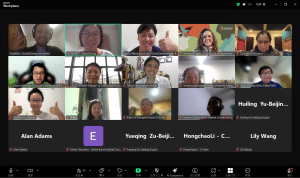This article deals with government departments establishing NGOs. For the author, this creates problems in terms of NGOs using government influence to hold on to money, reform bonuses and increases the burden on both grass-roots and enterprises. These NGOs are a hotbed of formalism, corruption, and wastefulness. The author suggests that government departments urgently need to profoundly reconsider and change this behaviour.
For example, according to a January 17th report in China Youth Daily, 33 NGOs and 9 subsidiaries use the influence of the state-controlled Chinese Medical Association to charge illegal fees, including fees for supplying information. Cumulatively, these organisations have raised over 1.7 billion RMB.
The author states that societies and associations (xuehui 学会 and xiehui协会) should be non-governmental organisations. However, due to an insufficient regulatory framework, some of these societies wear the hat of the market, carry the whip of the government, receive corporate money and provide officials with an opportunity to moonlight. Societies such as the Chinese Medical Association and the China Federation of Patriotic Projects derive their credibility and legitimacy from the government and effectively act as arms of the state, often carrying out tasks deemed by government as inconvenient.



